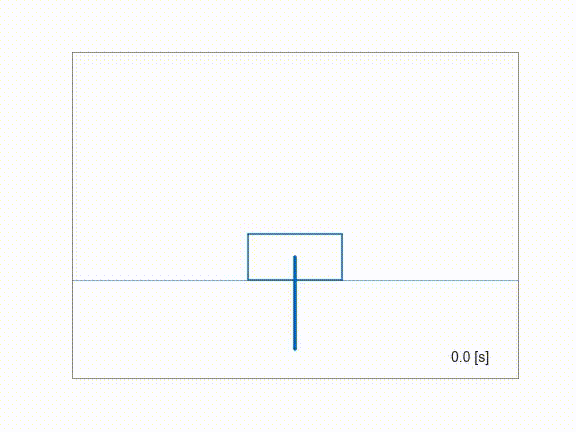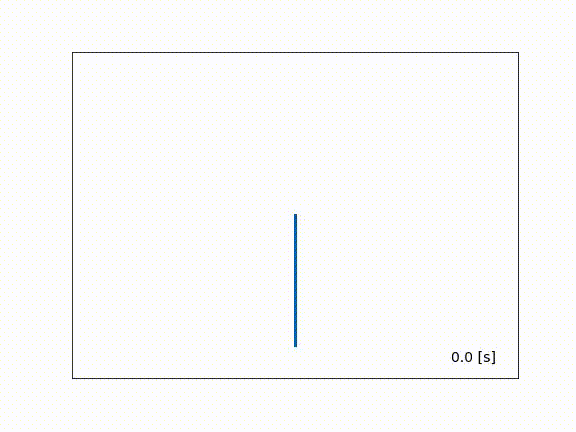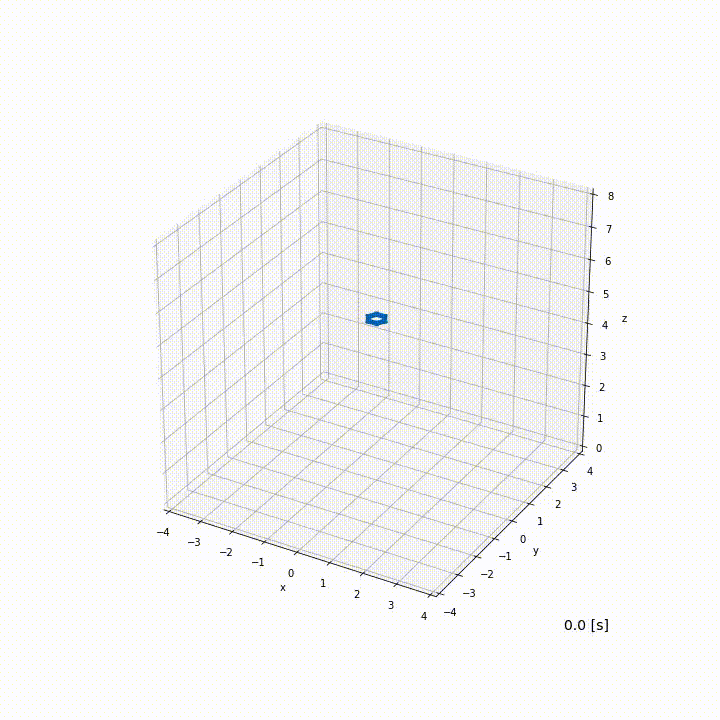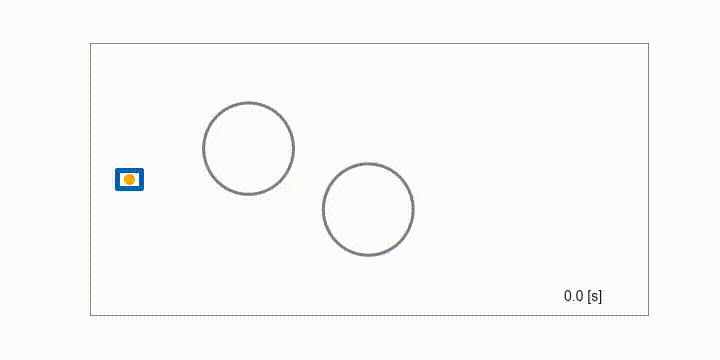Introduction
This project provides the continuation/GMRES method (C/GMRES method) based solvers for nonlinear model predictive control (NMPC) and an automatic code generator for NMPC, called AutoGenU.
The following C/GMRES based solvers are provided:
MultipleShootingCGMRESSolver: The multiple shooting based C/GMRES method with condensing of the state and costate directions.SingleShootingCGMRESSolver: The original C/GMRES method (single shooting).
Requirement
- C++17 (MinGW or MSYS and PATH to either are required for Windows users)
- CMake, git
- Python 3.8 or later, Jupyter Lab or Jupyter Notebook, SymPy, NumPy, and collection (to generate
ocp.hpp,main.cpp, andCMakeLists.txtbyAutoGenU.ipynb) - Matplotlib, seaborn (to plot simulation data on
AutoGenU.ipynb) - ffmpeg (to generate animations in the example notebooks)
- Doxygen (optional, to generate C++ docs)
Usage
1. Setup requirements
Please confirm that you clone this repository as
Otherwise, please do the following command:
The python modules can be installed via
2. Code generation
AutoGenU.ipynb generates the following source files under your setting state equation, constraints, cost function, and parameters:
ocp.hpp: A definition of the optimal control problem (OCP).main.cpp: An executablb of the closed-loop simulation.CMakeLists.txt: Scripts to build C++ projects.- Files in
pythondirectory : Source files of Python interface via pybind11.
You can generate these files, run simulations, plot results, and install the Python interfaces through AutoGenU.ipynb.
3. Python bindings
Python bindings are installed via .ipynb files. To use the installed Python bindings, set PYTHONPATH as
Then you can use python interfaces as
4. Install header-only cgmres C++ library
Aside from the notebook for the code-generation, the C++ cgmres library, which is a header-only library, can be installed by running
at the project root directory of autogenu-jupyter.
Then you can build the NMPC code with the generated ocp.hpp file and without .ipynb notebook files.
The examples are found in examples/cpp directory.
5. Install autogenu Python module
The pythton module autogenu can be instatlled by running
at the project root directory of autogenu-jupyter. Further, if you install have installed header-only cgmres C++ library as step 4, then you can run .ipynb files for the code generation in everywhere.
Documentation
C++ API documentation of cgmres library is found at https://mayataka.github.io/autogenu-jupyter/.
Python interfaces are almost the same as the C++ API, so please refere to https://mayataka.github.io/autogenu-jupyter/ even for Python interfaces as well as the tips for conversions between C++ and Python.
Demos
Demos are presented in cartpole.ipynb, pendubot.ipynb, hexacopter.ipynb, and mobilerobot.ipynb. You can obtain the following simulation results jusy by runnig these .ipynb files. The details of the each OCP formulations are described in each .ipynb files.




License
MIT
Citing autogenu-jupyter
We'd appriciate if you use cite the following conference paper:
References
- T. Ohtsuka A continuation/GMRES method for fast computation of nonlinear receding horizon control, Automatica, Vol. 40, No. 4, pp. 563-574 (2004)
- C. T. Kelly, Iterative methods for linear and nonlinear equations, Frontiers in Apllied Mathematics, SIAM (1995)
- Y. Shimizu, T. Ohtsuka, M. Diehl, A real‐time algorithm for nonlinear receding horizon control using multiple shooting and continuation/Krylov method, International Journal of Robust and Nonlinear Control, Vol. 19, No. 8, pp. 919-936 (2008)